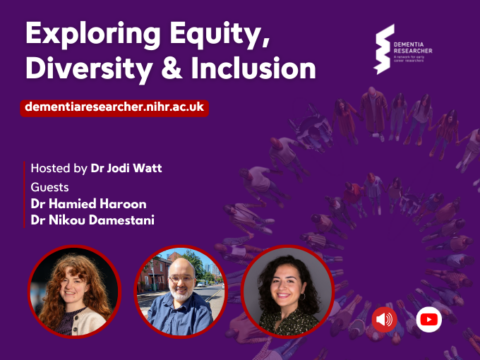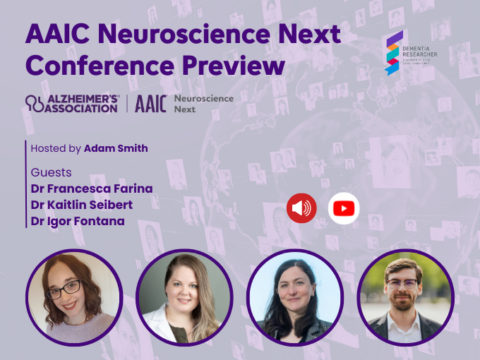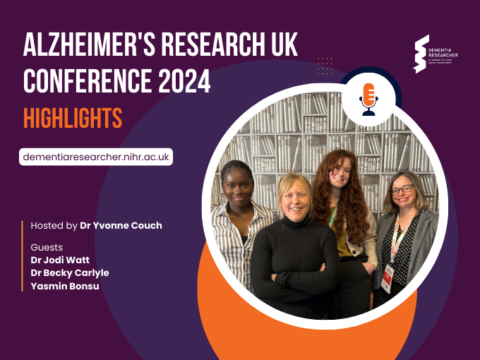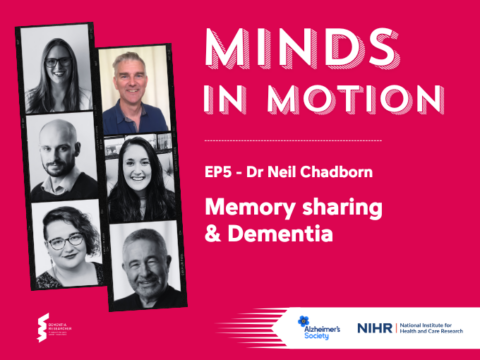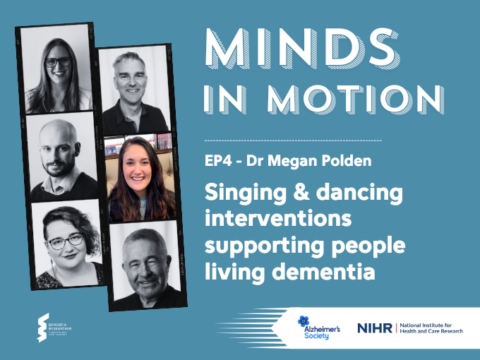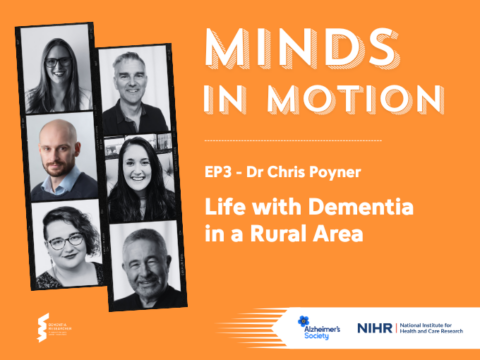Research that involves human subjects (also known as people), or even human tissue will often raise unique ethical, legal and social issues.
Research ethics is specifically interested in the analysis of ethical issues that are raised when people are involved, and even the most experienced of researchers find the process of getting a favourable ethical opinion, valuable and frustrating!
This week Megan O’Hare speaks with Yvette Vermeer a PhD student from UCL, James Fletcher a Teaching Fellow at King’s College and Danielle Wilson a Clinical Research Operational Manager at Oxford University Hospitals and also Vice Chair of your local research ethics panel. Discussing the challenges, benefits and giving tips and advice for Early Career Researchers navigating this process.
There are three objectives in research ethics:
1. The first objective is to protect human participants.
2. The second is to ensure that research is conducted in a way that serves interests of individuals, groups and/or society as a whole.
3. Last of all, the third objective is to examine specific research activities and projects for their ethical soundness, looking at issues such as the management of risk, protection of confidentiality and the process of informed consent.
To see more topics on ethics from our website click here.
Voice Over:
Welcome to the Dementia Researcher Podcast brought to you by dementiaresearcher.nihr.ac.uk, a network for early career researchers.
Megan Calvert-O’Hare:
Hello, a quick Google search will tell you that any research that involves human or animal experimentation will often raise unique ethical, legal, and social issues. Research ethics involving human participants, in particular, is especially pertinent in the field of dementia research. Research ethics must consider the following objectives, firstly, that the research must be conducted in a way that protects human participants. Secondly, researchers must ensure that the research serves the interests of individuals, groups and/or society as a whole. And thirdly, researchers should continuously examine specific research activities within a project for their ethical soundness, looking at issues such as management of risk, protection of confidentiality, and the process of informed consent.
Megan Calvert-O’Hare:
I think we can all agree that research ethics is important to protect participants, however, increasingly, ethics panels seem to be straying into judging studies in other ways, a topic which we will discuss further later on. Joining me today to discuss research ethics is our wonderful panel of researchers. Yvette Vermeer is a PhD student at UCL in the division of psychiatry. Yvette’s area of research in dementia is in dementia and surveillance technology, which obviously requires handling sensitive data and the ethical and social issues that come with using technology. James Fletcher, a teaching fellow at King’s College, London in the department of global health and social medicine. James’ work is informed by symbolic interactionist and anti-psychiatrist ideas and focuses on the dynamics of informal dementia care networks in the East Midlands. And Danielle Wilson, a clinical research operational manager at Oxford University Hospitals NHS Foundation Trust. Danielle is also the vice chair of a health research authority ethics committee who apply knowledge of the Mental Capacity Act to review research studies, recruiting individuals who lack capacity.
Megan Calvert-O’Hare:
Welcome to you all. Thank you very much for joining me. Danielle, maybe you could start our discussion by talking to us about what ethics is and when it is and isn’t needed.
Danielle Wilson:
Yep, sure. Thank you. No, that was a really good explanation. I’d probably add one other thing and that is to consider the researchers and the risk and the benefit, and that the researchers can actually carry out the project that they’ve been tasked and assigned to do. So, I would say, you’ve already mentioned the HRA, the Health Research Authority, their website is really good and they have a decision tool that will help you to decide whether or not your project is classed as research, whether it needs HRA approval and ethics approval. Speaking to your supervisor and your organization will also give you a really good idea about whether your project is research or not. And where it isn’t, where it might be service evaluation, it might be audit, you will not need HRA and REC approval, but you may need to consider whether you need some kind of logging of your audit or service evaluation via your institution or whether there are guidelines on conducting that audit.
Danielle Wilson:
If you want to use patient data without consent, maybe you want to assess thousands of records, so actually it’s not practical, you would need to be reviewed by a CAG, so that is a Confidentiality Advisory Group. And again, the HRA website is a really good place to look for that kind of guidance, really.
Megan Calvert-O’Hare:
Okay. You mentioned at the beginning of that, that you also look at the researcher’s risk and benefit. Is that to do with the ethics for the researcher, not the research?
Danielle Wilson:
Often, as you say, we review studies that might be student studies. We have UCL really, really close to us at Queen Square, so we look at whether the researcher has the training to do the study that they have been tasked with, will they be going to participants’ homes? Is there a lone worker policy and do they know what that is? Are they being asked to assess capacity and take informed consent and therefore do they have the correct training and experience to do those things?
Megan Calvert-O’Hare:
Okay. Yvette, welcome.
Yvette Vermeer:
Thank you.
Megan Calvert-O’Hare:
What has your experience been of applying for ethics? How did you prepare for the task?
Yvette Vermeer:
Well, first I actually want to comment on what just Megan said about protecting the researcher because that was also something I would like to point out today. I’m glad that that’s a big part of it. I do have experience with different kinds of qualitative data collecting methods. So, I got ethics approval by the university and it was very necessary in the case of my previous experience that I know how to communicate with people living with dementia. And at some point people got agitated and they were being angry with me.
Yvette Vermeer:
And I think if you had put another PhD student there who had never spoken to a person with dementia, they actually might have gotten frightened or the situation could have gotten out of hand. So, yeah, that was something I really wanted to point out that I’m glad that’s there. Sorry, what was the question again?
Megan Calvert-O’Hare:
The question was what has your experience been of actually applying for ethics? Is it an arduous task?
Yvette Vermeer:
Yes, it’s tedious. It took me a long time. But having said that, it took me a year, but I really prepared for it well, my supervisor was super supportive of it and overlooking everything and that’s why I think, I got the first time, I got ethical approval without any remarks.
Megan Calvert-O’Hare:
Okay, that’s great. And that was university ethics, was it?
Yvette Vermeer:
Yes, yeah.
Megan Calvert-O’Hare:
Not through the Health Research Authority.
Yvette Vermeer:
Nope.
Megan Calvert-O’Hare:
Okay. James, welcome.
James Fletcher:
Thank you.
Megan Calvert-O’Hare:
What has your experience been of applying for ethics given your research focuses on informal dementia care networks?
James Fletcher:
Well, actually you highlight the informal aspect there and that is really important when you come to apply for ethics because the world of formal ethics and the world of informal care don’t always sit neatly together. And of course, the problem with informal situations is that you aren’t necessarily going through established organizations, formal structures, and all of those safeguards that I think ethics committees like, because they introduce some extra certainty into your project. There’s a lot of inevitable uncertainty in informal situations. You often find people, perhaps through word of mouth or through informal situations, you enter into an informal research situation because you go into a person’s home, nobody can anticipate what that person’s home will be like. And so, there are a lot of uncertainties there, which are quite difficult to sell to an ethics committee. And so, I did not receive approval the first time. It took a little bit of dialogue.
Megan Calvert-O’Hare:
Okay. But was that through university ethics or through the Health Research…?
James Fletcher:
That was through the Health Research or Authority’s Social Care Research Committee, although I’m not sure that it was under the remit of the Health Research Authority when I first applied. I think it moved under their remit whilst I was going through the process, so I experienced both sides of that. I did first apply to the university ethics committee. I was quite surprised to hear about Yvette’s situation because I was at King’s College and that university ethics committee told me that no university ethics committee would sanction research that involved people with dementia as participants, because it wouldn’t sanction research that fell under the Mental Capacity Act.
Megan Calvert-O’Hare:
Right. Okay. Do you think … I mean, we’ll come back to the Mental Capacities Act, I think, with Danielle there, but you were able to open a dialogue with the HRA once you’d been unsuccessful the first time, they were open to having a discussion with you about how to get ethical approval for your research?
James Fletcher:
Yes. And certainly it’s important to remember when you’re going through this tedious and difficult process and it is very protracted, I also took a year to go through the ethics process, that they don’t want to stop the research. It’s in no one’s interest to prevent research, it’s simply a process of enhancing research as they see it. You may disagree, but they’re not trying to ultimately stop research.
Megan Calvert-O’Hare:
Yeah. And do you think, both of you have mentioned that it took you a year, possibly tediously, but in a way, do you think the length of that journey actually did help you think through your project a bit more? And it may not have been successful for you the first time, but it may actually have highlighted parts of your research that needed thinking about more?
Yvette Vermeer:
Yeah, definitely. I really thought about the questions I was going to ask, about the information sheet, but then again, even though I thought it really through, in the end, in reality it went so different. For example, I really was designing an information sheet that the person living with dementia could sign, but the ethics committee wasn’t happy with having crosses to sign, but people with dementia might have difficulties even signing anything. But I really got prepared by it. Yeah.
Megan Calvert-O’Hare:
Yeah. When you say, they might not have the capacity to sign, the ethics committee you were going to, were they specialists enough that you could just talk to them about that or was it just that they have a blanket response to say, “Well, no, they have to sign it?” Do you see what I mean?
Yvette Vermeer:
Yes. I was lucky that I did a workshop at UCL with the ethics committee, so I could ask some questions beforehand. And like I said before, my supervisor was so experienced that I knew how to fill it in, in order to get approval.
Megan Calvert-O’Hare:
Yeah. And maybe, Danielle, we could come to you now because in the intro I said you specialize in applying knowledge of the Mental Capacities Act to review research studies that you see recruiting individuals who lack capacity. Maybe you could talk us through that a bit, to help early career researchers who might be starting the-
Danielle Wilson:
Yep. Yeah. Sure. So, when you decide what research study you’re doing and whether you will, “have to,” and I say that in inverted commas, include patients who might lack capacity. You will phone up a centralized booking service and they will ask you that question and that means that that research study will go to a committee that is flagged to assess those kinds of studies. So, studies that need assessment under the Mental Capacity Act. So, you might be doing a study where you want to include people who have been hit off their bikes, in A&E, and we have had the case at Queen Square. So, you need to include this proportion of participants because actually what you’re trying to test will simply not work in patients that haven’t been knocked off their bikes. Or as the panel have mentioned, including participants that have mild cognitive impairment and maybe throughout the course of the study they may not be able to understand, they may not have capacity, or those that don’t have capacity entry into the study.
Danielle Wilson:
So, we will evaluate those studies according to the Mental Capacity Act, according to a list of criteria that we have. And our ultimate aim is to only include those participants if the study will be of benefit to them and if it cannot be done in any other participant group. And I like what the panel have said about the ethics committee not wanting to stop research, we understand that it’s a long process and we hope that the IRAS form can be used to refine the study, the research question, who you are including, and I know the HRA are also making changes to the IRAS form because it is quite repetitive. But yeah, we hope that the study will be better by coming to a committee and absolutely we want to make it better and work with you and not stop the research from happening.
Megan Calvert-O’Hare:
And I think both Yvette and James, you have applied for ethics through universities and also the Health Research Authority. And I know James, you said King’s College London sort of put a break on your research, in a way. Is there a big difference between the two?
James Fletcher:
Yes. A little calculatedly, I first went to the university ethics committee because there seemed to be a bit of a grey area over whether dementia was within their remit or not. And I did that because they are seen, and probably rightly so, to be a slightly less tedious process, a less difficult process to pass through. That didn’t work out. And so, they then sent me to an HRA committee, which again, they’re not stopping research, they’re just passing you on to a relevant body.
Megan Calvert-O’Hare:
Mm-hmm (affirmative). Okay. And Yvette, you’ve done both?
Yvette Vermeer:
No.
Megan Calvert-O’Hare:
Oh, you haven’t.
Yvette Vermeer:
Because I got it the first time.
Megan Calvert-O’Hare:
Oh, yeah, well congratulations.
Yvette Vermeer:
I won the lottery.
Megan Calvert-O’Hare:
So, how much importance do ethics panel’s put on patient and public involvement? Maybe, Danielle, you could pick up this question?
Danielle Wilson:
Yeah. Yeah, sure. That is an interesting question and we had the director of policy at our last ethics committee and it was something that I spoke about completely unbeknown to me that I’d be asked today, because we always discuss it and we definitely congratulate researchers that have included it. And we often say, if we get an information sheet that actually isn’t clear to us, or uses lots and lots of technical language, please show this to someone who you would like to recruit into that study. But there’s actually, there’s no formal kind of recommendations, but the studies that have had patients and public on their steering groups, or work hand-in-hand with the researchers, they are definitely the studies that we see that have much better information sheets and actually have a much better protocol that means more to that patient population.
Megan Calvert-O’Hare:
Okay. So it’s not necessarily a requirement that if you have it you will get through or?
Danielle Wilson:
Absolutely. Yeah.
Megan Calvert-O’Hare:
But it does actually inform the research more so that then it will potentially get signed off.
Danielle Wilson:
Yeah, yeah. Absolutely. Patient information sheets that maybe haven’t been seen by anyone else apart from the investigator are less likely to be understood, I think, by us as a committee, which does include lay members and just less lay and less clear, I think
Megan Calvert-O’Hare:
Mm-hmm (affirmative). To come back to you, James, and your informal dementia care research, so you did get ethics for that study?
James Fletcher:
Yeah.
Megan Calvert-O’Hare:
You obviously approach people, but you said sometimes it may go word of mouth and you’ll be introduced to someone along the way. Do you think that there’s an element of distrust when you go to people and then produce an ethics sheet and they have to sign, and do you think that they interact with you differently?
James Fletcher:
That is an interesting point. I just wanted to return to that point about the information sheets because I had a very interesting experience of this, which was the most disheartening moment in my ethics journey. I consulted on my information sheets with some older relatives with cognitive impairment and there was just a flat out disagreement between what they said was appropriate and what the ethics committee said was appropriate. And in the end I had to bend to the ethics committee because the ethics committee sanctioned my work. Whereas those people with cognitive impairment do not sanction my work. And there was a point at which that was quite disheartening because I did think, me and my colleagues joked that there was committee world and real world and I had to satisfy committee world.
Yvette Vermeer:
Exactly. I had the same experience.
Megan Calvert-O’Hare:
Okay, well we have committee world here, would you like to come back at that?
Danielle Wilson:
I would definitely say, make a robust argument to the ethics committee because in the end a group of people that are not your participants, cannot sanction that this is right and that is wrong. And I think if you make a strong argument, the committee should really take that on board. And I know certainly in Queen Square we would take that on board and we have had those conversations before, ooh, should they be using this word? Should they be using that? Well, actually they have shown it to the most important people, who are the participants. So, I think making the argument, I guess you might not always get the decision to go the way you want it, but I would not ignore that, at the committee.
James Fletcher:
Sorry. I should say that that’s the most extreme example in my experience, and there are many other ways in which the committee helped my study.
Megan Calvert-O’Hare:
Yes. Yeah. I just wondered on your ethics committee, do you have public and patient representatives?
Danielle Wilson:
Yep. So, the committee is made up of lay members. So, we used to have an accountant that would come along and be very interested in the indemnity part of people’s studies. And we then have expert members, so researchers, doctors, nurses, who use their clinical judgment to assess the study. So, we have a real mixture of both, and actually, we need it to be a certain makeup of lay members and experts for us to be [CORA 00:00:18:24]. And I think that’s one of the best things of the ethics committee, the fact that it isn’t just made up of doctors and nurses.
Megan Calvert-O’Hare:
Yeah. Would you like to answer the trust question?
James Fletcher:
Oh, and of course, returning to that, you’ve also asked me a bit of a question that will not paint the ethics committee in the best light and eventually I had to yield to them and had to go via formal organizations to contact families with dementia, and that had unfortunate methodological consequences, as you can imagine. There’s no need to go into the complexities of those methodological consequences here, but I did have to yield on that and to me that remains a serious issue because informal care is my major area of research and it concerns me for the state of that research, in general. If ethics committees do steer people for understandable reasons towards formal avenues of research and formal avenues of recruitment.
Megan Calvert-O’Hare:
Yeah. It is a tough balance, I guess, because you really are trying to protect the participants, but then that can mean that in a way you get sterile results possibly because-
James Fletcher:
Yeah. Completely understandably as well, yeah.
Megan Calvert-O’Hare:
Yeah. Okay. Maybe we could talk a bit about what the normal process is for an ethics panel review, Danielle.
Danielle Wilson:
Yeah. Sure. So, we will get a really thick pack of five or six studies a couple of weeks before the committee meeting. It’s also online now, which is great, save the environment and my postman’s back too. So, two people will review that study, you’ll have a first reviewer, second reviewer, the first reviewer will give a summary of that research and any points that they think that the committee should discuss. And we will look at aims and objectives, are you including enough participants, are you including too many to meet those aims and objectives? We will then focus heavily on the process for recruitment. Who is going to be approaching those participants and then what training has the researcher had in assessing capacity in informed consent? And then we will look at the burden for researchers and for participants as well.
Danielle Wilson:
And we will have a discussion of those points. And really, it’s the chair’s job to consolidate all of those points, to discuss any that certain people might not be happy with but others actually are very happy with, and we have had that. And then to bring the researchers in and ask them some questions that will just clarify some of the points. And actually, I think if you’ve come prepared and you know your protocol, which sounds ridiculous, but actually people have many competing projects that they work on. So, know your protocol, be able to answer most of the questions. If you are a student is advisable to bring your supervisor so they can support you with that. And then we will make a decision based on everything we’ve heard for that application after the researcher has left.
Megan Calvert-O’Hare:
And at that point, you go back with potential pitfalls or questions and then they can revise or come back to you?
Danielle Wilson:
Yeah, absolutely. So, we may give a favourable, which is what I like to do best, so that means there are no substantial changes or questions that we have. We’ve managed to resolve it all at the meeting. We may give a provisional because we would like you to provide more information on different parts or maybe we think you should change things on your patient information sheet that we’d like to see. Or we can reject an application because actually there’s just far too much work to do. So, those are all of the decisions that we make.
Megan Calvert-O’Hare:
Okay. And Yvette, you said a couple of times that you were approved first time, but did you have any other challenges along the way whilst doing it, apart from the fact that it took a year?
Yvette Vermeer:
Also, what James just said, I research informal caregivers and that was very difficult, but also, I included people with mild dementia and if you would have gone to later stages it would have definitely been a no. Yeah, that the university isn’t happy about ethics approval for that, so it’s already made my research a lot different from the early stages. All the difficulties besides the information sheet had to do with the privacy because also the privacy of the data was changing at that moment and none of us just … And, I guess, also the ethics committee knew where we were standing because I collect data in different countries and that was very difficult for me. I didn’t have anything to look, at any similar projects, so it’s quite different in the UK compared to the Netherlands and Sweden. In Sweden, I couldn’t even get ethics approval because I’m not Swedish, and in the Netherlands was so easy, I didn’t even need to apply for ethics.
Megan Calvert-O’Hare:
So, did you have to just drop Sweden out of your-
Yvette Vermeer:
Yeah. I did. Unfortunately, yeah.
Megan Calvert-O’Hare:
Wow. Okay. They must have an ethics committee, could you not have worked with them or linked up somehow?
Yvette Vermeer:
Yes. But then I had to choose whether to go for the UK where I’m based or try to get ethical approval in Sweden while I was just there for three months. So, that was also an option.
Megan Calvert-O’Hare:
As we have Danielle here from the Health Research Authority and both of you have said about, it’s quite difficult if you are going into the informal care setting. Do you have any suggestions on policy that they could implement to help this or, I mean-
Danielle Wilson:
I have a question.
Megan Calvert-O’Hare:
Yeah, sure.
Danielle Wilson:
What is informal care? What does that mean? These are the kind of difficulties that we have and we’re not a social care committee, but it’s actually understanding those terms and I might know what it is from the top of my head, but I don’t actually know what you mean by that terminology, I guess.
Megan Calvert-O’Hare:
Okay. James?
James Fletcher:
I guess, typically when we speak of informal care, what we really mean is unpaid care by family, friends, neighbours, that sort of thing. But I guess what matters in terms of procedural ethics is, it is care that is cut loose from formal systems. So there’s no formal structured relationship and it’s not bound to any institution that can act to put the usual safeguards in place. And I think that that is why, as I say, understandably, it’s difficult because everything is inevitably more unknown and a little bit more dynamic in a sense. Yeah.
Megan Calvert-O’Hare:
But you do approve studies where people go into people’s homes and talk to the families, so I mean, that would be where the research will be taking place, not in a formal setting, so it would be in their home?
James Fletcher:
Yeah.
Megan Calvert-O’Hare:
So, okay.
James Fletcher:
No, so that’s certainly possible and I still did that. I still went into people’s homes and conducted research there, away from any professionals. Yeah.
Megan Calvert-O’Hare:
Well, we talked earlier about that’s such a deep part of the committee’s response is to make sure that you are safe doing that. Did you feel you got that support from the committee or they highlighted that to you?
James Fletcher:
They raised the issue with me and I submitted within my procedure how I was going to go about eliminating any potential difficulties to do with that. That actually mostly came through the university. My university has a lone working policy and I adhered to that.
Megan Calvert-O’Hare:
Okay, great. This has been really great from a personal point of view because as I explained, I come from a basic biology background, so I have no experience of research ethics, but this has been amazingly interesting for me. I think maybe we’ll wrap it up with, do you have any advice for people starting off on their journey into research ethics? Danielle?
Danielle Wilson:
Yeah. I would say come and shadow a committee. They are all over England. Come and see what we do. Go behind the scenes and even better, join a committee. As I say, we’re made up of lay members and expert members, we’re always looking for new members and you get a really good … Well, you read hundreds of IRAS forms, hundreds of research protocols and you get to discuss things with really interesting people and get to meet really interesting researchers.
Megan Calvert-O’Hare:
Okay. Excellent. Yvette?
Yvette Vermeer:
I got two tips. The first one is, do a workshop at your university because then you also look at other students and you get the chance to speak to a member of the ethics committee. The second thing is, which I just heard why I probably got ethics approval is, set up a PPI, so please do that.
Megan Calvert-O’Hare:
Yeah. Okay. James.
James Fletcher:
I had a bit more of an idealist point.
Megan Calvert-O’Hare:
Go, yeah.
James Fletcher:
I did think about this. I think, it strikes me that when I speak to researchers, especially PhD researchers, that procedural ethics, because of the length of the process and the length of the documents we produce becomes a bit of an end in itself, sometimes. I think many researchers get that feeling that I’ve got ethical approval, oh thank God, and then all of a sudden you realize, wait, that’s just a start, now I do the research. And I think there’s a danger that ethics gets separated from research and that people shouldn’t look at getting approval as the end of the process. You need to be thinking throughout about ethics. So, during the research be thinking about these broad principles of right and wrong, participants’ wellbeing and those things. And I worry that the over-proceduralisation of it, in a sense, to use a horrible sociological word, makes people think of it as two separate brackets.
Megan Calvert-O’Hare:
Yeah. I was actually about to say, this may be over-proceduralising it more, is that once you get ethical approval the committee steps back or do you-
Danielle Wilson:
Yeah, we get annual reports every year.
Megan Calvert-O’Hare:
Right, okay.
Danielle Wilson:
And if there’s any changes that you would like to make to your protocol, it does have to go, if it’s a substantial amendment, via the committee. But I completely agree, ethics is everywhere and because we work in research, we talk about it a lot, but actually it’s everything we do and say, and how we act with other people. So, it’s not just, oh my goodness, I have my ethical approval. I can forget about that now. It’s then carried on right to the end of the project and beyond, I would say.
Megan Calvert-O’Hare:
Okay. Well, great. Thank you so much for coming in and talking about research ethics. I think possibly the take home message is, they’re not trying to stop research, so work together on this. If you would like to know more about applying for ethics, have a look at the Health Research Authority website, www.hra.nhs.uk. Has lots of guidance and advice, as Danielle has said, and also visit Dementia Researcher, our own website, as we will be posting a few blogs on ethics over the coming weeks. So, thank you very much.
Voice Over:
This was a podcast brought to you by Dementia Researcher, everything you need in one place. Register today at dementiaresearcher.nihr.ac.uk.
END
Like what you hear? Please review, like, and share our podcast – and don’t forget to subscribe to ensure you never miss an episode.
If you would like to share your own experiences or discuss your research in a blog or on a podcast, drop us a line to adam.smith@nihr.ac.uk or find us on twitter @dem_researcher
You can find our podcast on iTunes, SoundCloud and Spotify (and most podcast apps).

 Print This Post
Print This Post